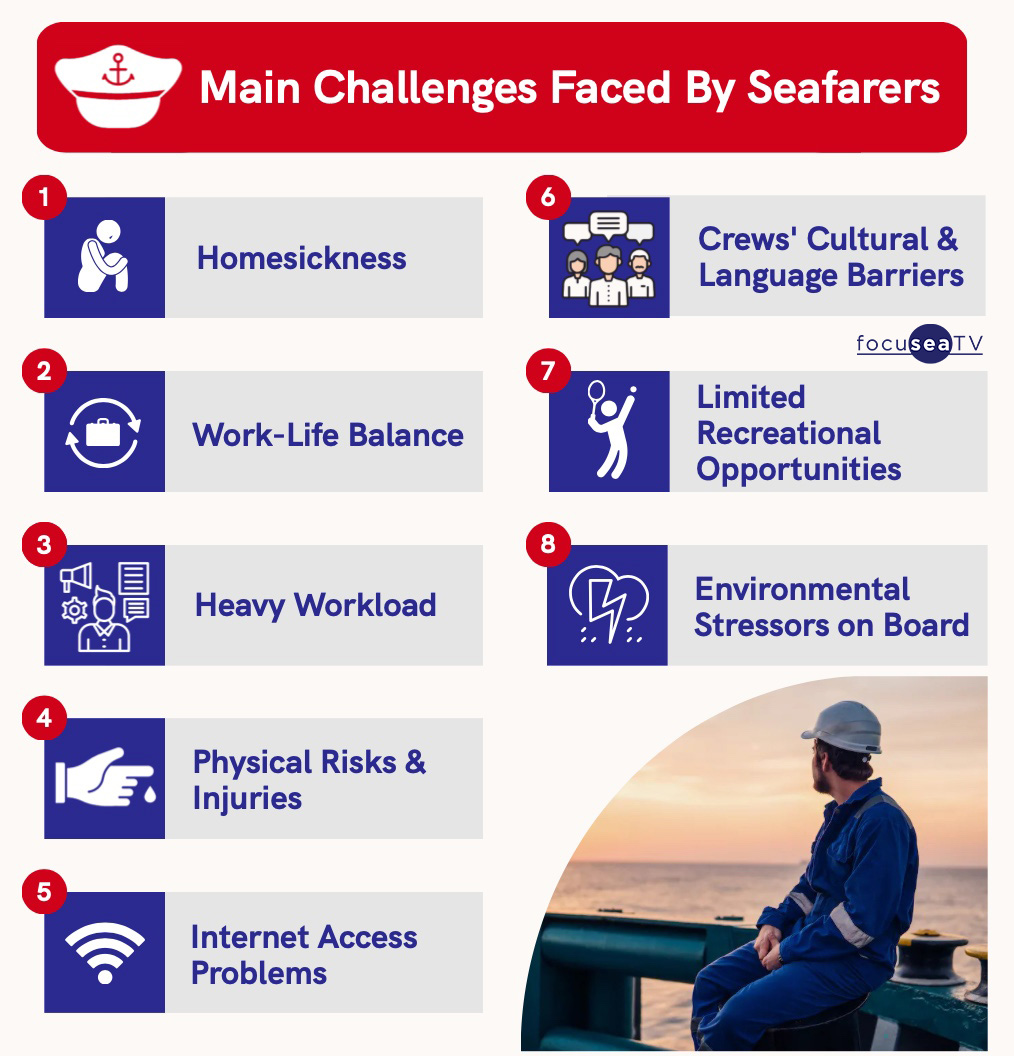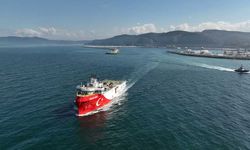Maritime careers promise excellent opportunities, attractive salaries, long holidays, travel opportunities, and overall job satisfaction. However, the lives of seafarers are unique, filled with specific challenges that can contribute to heightened stress levels, affecting physical health, mental well-being, and workplace morale.
In this article we would like to highlight some of the challenges that seafarers face on board ships.
1. Long separation from home and family
Living and working at sea means leading a nomadic life, spending extended periods away from family and friends. While exploring distant ports is exciting, the biggest emotional challenge every seafarer has to face is homesickness.
2. Work-life balance
The relentless 24/7 nature of life at sea poses a unique challenge for seafarers, impacting their delicate work/life equilibrium. This constant operational cycle not only makes it challenging to establish a healthy balance between work and personal life but also hinders a seafarer's ability to relax mentally and physically during off-duty hours.
3. Heavy workload
Seafarers often find themselves dealing with multiple tasks, some of which may not be directly related to their primary responsibilities. Directives and paperwork flowing from the head office or shoreside often create an "never-ending workload" for many. Even on larger vessels, there is a trend towards cost reduction that exacerbates this situation by diminishing crew numbers. This compels seafarers to navigate through a constant juggle of duties, including those that may fall outside their primary scope, highlighting the demanding nature of their roles at sea.

4. Physical risks and injuries
Working on a ship is inherently more dangerous than many other professions. Maritime workers often face injuries due to challenging weather conditions, poorly maintained equipment, and inadequately trained crew members. Furthermore, the modern maritime sector remains susceptible to piracy, with the risks escalating for sailors in regions prone to piracy and terrorism.
5. Internet access problems
Seafarers face a challenge in securing reliable internet access, crucial for staying connected with their families or the outside world. Limited and unreliable connections, slow speeds, and expensive data rates hinder effective communication, causing frustration.
6. Cultural and language barriers amongst crews
Seafarers encounter cultural and language barriers that have the potential to create stress and increase isolation among teams. Communication challenges among crew members from different cultures stem not only from language differences but also from variations in social norms, communication styles, and expectations. This situation not only hampers daily collaboration and teamwork processes but also fosters a lack of understanding and emotional disconnect among seafarers.
7. Limited recreational opportunities
The lack of leisure facilities onboard, such as fitness rooms or social events, poses a significant challenge to the well-being of seafarers. The absence of these amenities can adversely affect their physical, psychological, and social health. Regular and vigorous exercise, a vital component of overall well-being, becomes challenging, contributing to the risk of accidents or injuries as muscles remain underutilized and prone to becoming flabby.
8. Environmental stressors on board
Seafarers are continuously exposed to environmental stress factors related to the ship, such as constant ship movement, noise, and vibrations. These factors are often perceived as stressful, particularly during sleep hours, significantly impacting the recreational value of leisure time.






